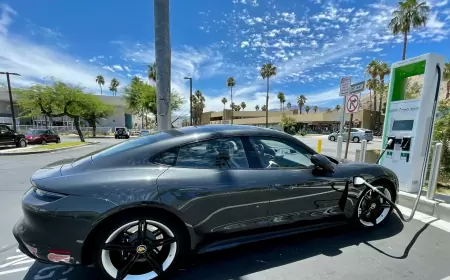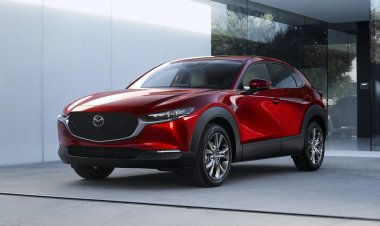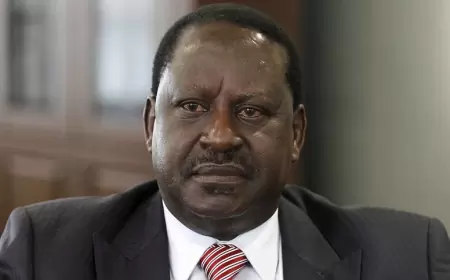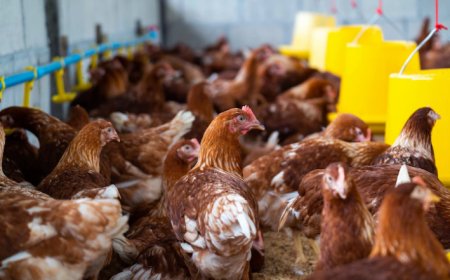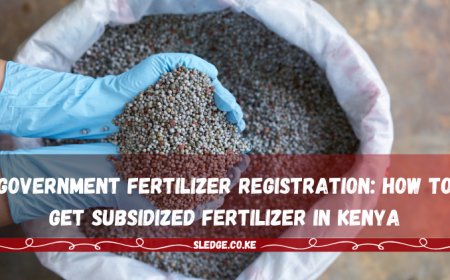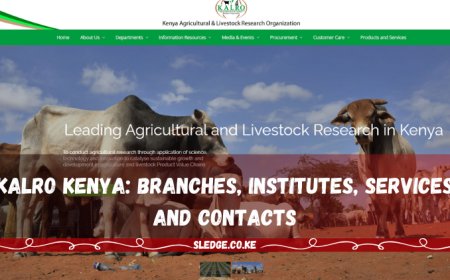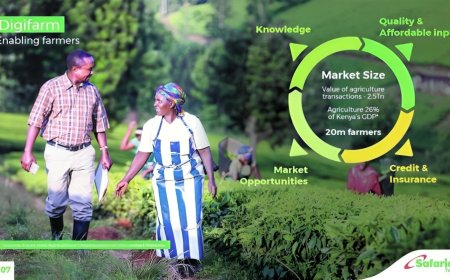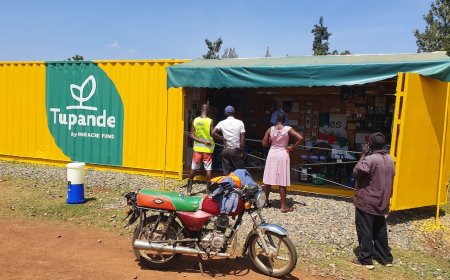Top 10 Richest Countries in Africa 2024 (Ranked by GDP)
Discover the economic powerhouses of Africa as we reveal the top 10 richest countries based on their GDP. Explore their diverse industries and impressive growth

Often depicted as an underdeveloped continent, Africa has incredible wealth and resources. This article will explore Africa's top 10 wealthiest countries based on their Gross Domestic Product (GDP). The GDP figures have been sourced from the International Monetary Fund (IMF), the universally recognized regulatory body for the world's monetary system. These countries have demonstrated impressive economic growth and possess diverse industries contributing to their wealth. Let's delve into each country and discover what makes them the economic powerhouses of Africa.
1. Nigeria (GDP: $504.2 billion)

With its vast human potential and abundant natural resources, Nigeria proudly holds the title of the wealthiest country in Africa. Its nominal GDP of $504.2 billion and a purchasing power parity (PPP) GDP of $1.3 trillion confirm its economic prowess. Nigeria's economy heavily relies on oil production, making it the leading oil producer in Africa. However, despite its economic strength, a significant portion of Nigeria's population still lives below the poverty line, highlighting the need for inclusive growth and economic reforms.
2. Egypt (GDP: $469.1 billion)

Situated in Northeast Africa, Egypt boasts the second-largest economy on the continent. With a GDP of $469.1 billion, Egypt has achieved remarkable economic growth through its reform and economic openness program. Manufacturing, wholesale and retail commerce, and various other sectors contribute significantly to Egypt's diverse economy. However, political instability and a high poverty rate remain challenges that must be addressed for sustained economic progress.
READ ALSO: The Top 13 Richest Men in the World 2024
3. South Africa (GDP: $411.5 billion)

South Africa, known for its industrialization and technological sophistication, occupies the third spot on our list. With a GDP of $411.5 billion, South Africa plays a vital role in Africa's economic landscape. The country possesses a two-speed economy, with one sector on par with industrialized nations and another in dire need of basic infrastructure. Although South Africa's natural resource extraction industry is substantial, the country has diversified its economy over the years, particularly in the service sector.
4. Algeria (GDP: $187.1 billion)

Algeria, one of Africa's primary oil and gas producers, claims the fourth position among the wealthiest countries in Africa. With a GDP of $187.1 billion, Algeria has made significant progress in infrastructure development, education, and industrial growth. However, the economy relies heavily on hydrocarbon earnings, challenging economic diversification and social development. Addressing income inequality and reducing dependence on oil revenues are crucial for Algeria's sustainable economic growth.
5. Morocco (GDP: $142.9 billion)

The Kingdom of Morocco, with a GDP of $142.9 billion, ranks fifth among Africa's wealthiest countries. The country has made impressive strides in economic growth, with an average annual rate of 4% over the past decade. Morocco's major industries include the automobile, agriculture, and phosphates, contributing significantly to its economy. However, social inequality and a lack of social mobility remain significant challenges that need to be addressed for inclusive and sustainable growth.
6.Angola (GDP: $124.8 billion)

Angola, with its rich reserves of oil and minerals, is the sixth most prosperous country in Africa, boasting a GDP of $124.8 billion. The country experienced a rapid economic surge between 2002 and 2016, thanks to its vast economic potential and recovery from a long civil conflict. However, Angola still faces considerable challenges, such as income disparity and a high poverty rate. Diversifying the economy beyond oil and promoting equitable wealth distribution is crucial for Angola's future economic stability.
7. Kenya (GDP: $114.9 billion)

Kenya, the only low-middle-income nation in East Africa, secures the seventh spot on our list, with a GDP of $114.9 billion. The country maintains an open foreign economy exchange system and a market economy with a few state-owned firms. Agriculture, forestry, mining, manufacturing, energy, tourism, and financial services drive Kenya's economy. Kenya has made remarkable progress with the third-largest economy in sub-Saharan Africa, but addressing income inequality and enhancing infrastructure remain vital priorities.
8. Ethiopia (GDP: $101.2 billion)

With a remarkable GDP growth rate of over 10% annually, Ethiopia ranks eighth among Africa's wealthiest countries. Its GDP stands at $101.2 billion, and the country has made significant strides in poverty reduction. Ethiopia's transition to an industrial and exporting economy has contributed to its economic growth. While political disputes and regional economic disparities persist, Ethiopia's commitment to market liberalization and industrial development sets a positive trajectory for its future economic success.
9. Tanzania (GDP: $76.6 billion)

Tanzania, heavily reliant on agricultural processing and certain consumer goods, is ninth among Africa's wealthiest countries. With a GDP of $76.6 billion, Tanzania's economy is primarily driven by agriculture, which accounts for a quarter of the country's gross domestic output. The tourism sector has also been growing in importance as a significant source of foreign revenue. However, Tanzania faces challenges in industrial development and competition in the global market, requiring further economic reforms for sustained growth.
10. Ghana (GDP: $76 billion)

Renowned for its petroleum and natural gas production, Ghana rounds up the list of Africa's top 10 wealthiest countries, with a GDP of $76 billion. Agriculture contributes significantly to the country's gross domestic product, particularly cocoa and gold production. Ghana has expanded its agricultural offerings to include pineapples, cashew nuts, and black pepper products. While the country has experienced economic growth, the underdeveloped industrial sector and fluctuations in international commodity prices challenge its economic stability.
READ ALSO: List of Profitable Business Ideas to Start with KSh 100k in Kenya
Conclusion
Africa is home to several wealthy nations that have harnessed their abundant resources and human potential for economic growth. The top 10 wealthiest countries in Africa, including Nigeria, Egypt, South Africa, Algeria, Morocco, Angola, Kenya, Ethiopia, Tanzania, and Ghana, exhibit diverse economies with varying levels of industrialization and reliance on natural resources. However, these nations must address challenges such as income inequality, social mobility, and diversification of their economies to ensure sustainable and inclusive growth for their populations.
FAQs
1. How is GDP calculated?
Gross Domestic Product (GDP) is calculated by summing up the total value of goods and services produced within a country's borders during a specific period. It includes consumer spending, government spending, investment, and net exports (exports minus imports).
2. Are these rankings subject to change?
Yes, the rankings of the wealthiest countries in Africa based on GDP can change over time due to economic fluctuations, policy changes, and global events. It is essential to refer to the latest data from reliable sources such as the International Monetary Fund (IMF) for the most up-to-date information.
3. What are some key sectors driving these economies?
The key sectors driving the economies of these rich African countries vary. Some common sectors include oil and gas production, agriculture, manufacturing, tourism, mining, financial services, and infrastructure development. Each country has its unique mix of industries contributing to its GDP.
4. How can these countries address income inequality?
Addressing income inequality requires a comprehensive approach involving policies promoting equitable wealth distribution, access to quality education, healthcare, and social safety nets. Additionally, encouraging entrepreneurship, creating job opportunities, and promoting inclusive economic growth can help alleviate income disparities.
5. What are the challenges these countries face for sustained economic growth?
Some common challenges these countries face include political instability, corruption, inadequate infrastructure, income inequality, and overreliance on a single industry or natural resource. Diversifying the economy, promoting good governance, investing in education and healthcare, and attracting foreign direct investment is vital for sustained economic growth.
6. Is Africa's economic potential being fully realized?
While Africa possesses immense economic potential, there is still room for growth and development. To fully realize its economic potential, the continent must address various challenges, including infrastructure gaps, social inequalities, and political instability. However, Africa's progress in recent years indicates a positive trajectory for its economic future.


























